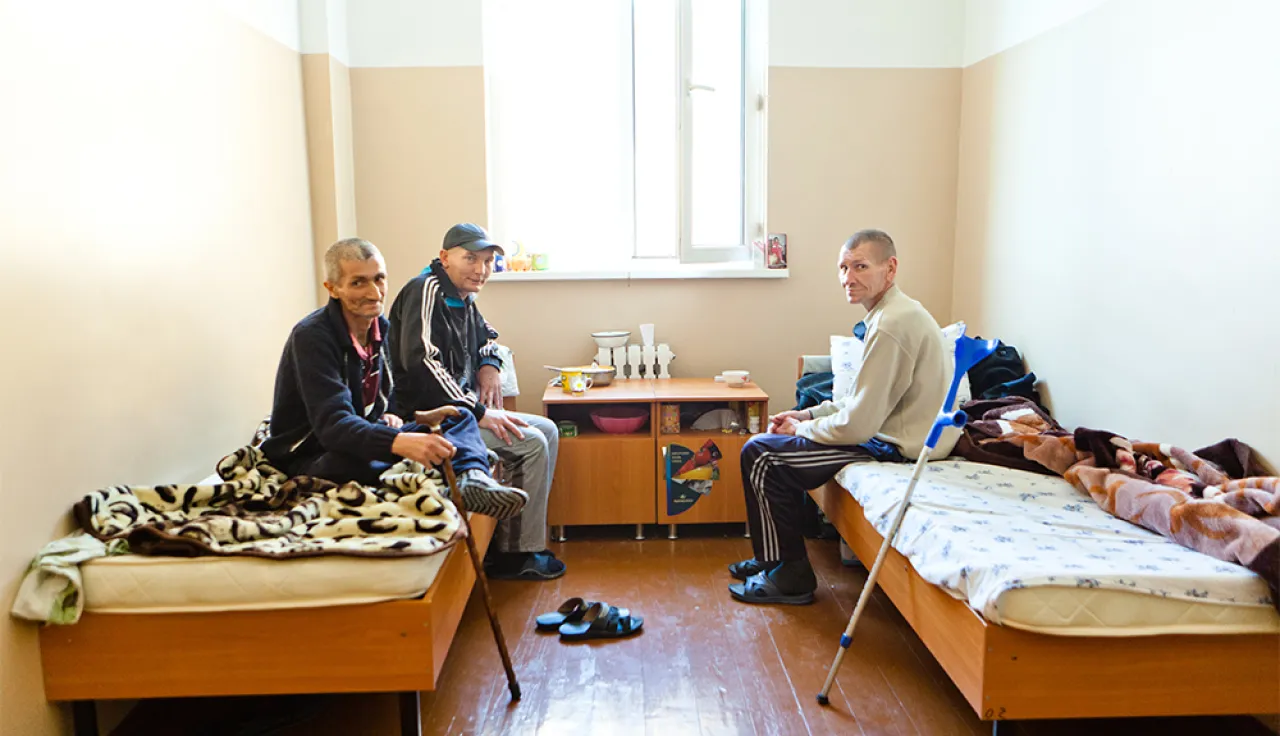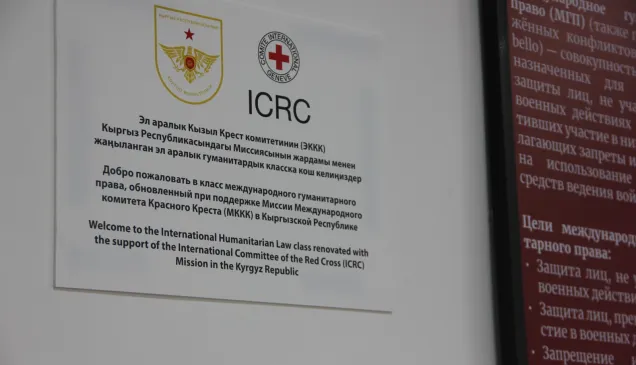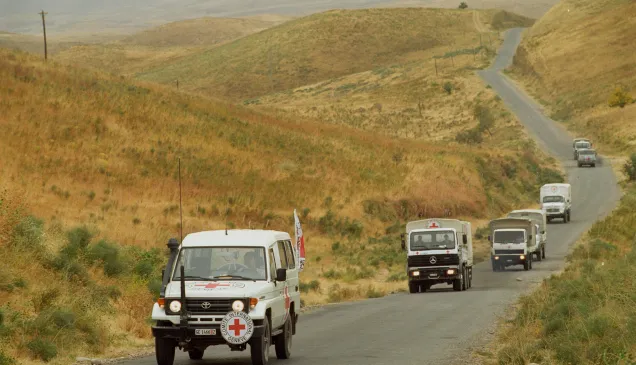During January, February, March and April 2017, the ICRC delegation in Kyrgyzstan continued assisting victims of violence, visiting detainees and providing improved access to basic health care. We also helped the Red Crescent Society of Kyrgyzstan boost its capacity to respond to violence and other emergencies, to restore family links and to promote fundamental humanitarian values
Here is an overview of our work from January to April 2017.
 |
Improving the treatment of detainees:
|
- The ICRC staff made 45 detention visits to 38 places of detention. Out of almost 7,000 detainees visited, over 160 people received individual follow up while 33 rounds of assistance were distributed to 32 places of detention.
- Around 300 family members were provided with support to cover their travel costs to visit their detained relatives. In many visits, which came after years of separation, the relatives were visiting the detainees for the first time. Within the framework of the Family Visit Programme, relatives of 141 detainees were able to visit them.
- A new policy directive for the Rehabilitation Service of the State Service for the Execution of Punishments (SSEP) of the Kyrgyz Republic was elaborated by a working group created under the SSEP with the support of the ICRC Prison System Advisor. Around 80 staff of the Rehabilitation Service of the SSEP participated in a series of trainings and meetings in Bishkek and Osh.
- Over 20 staff of the Regime Service of the SSEP participated in a round table called, “The regime service of the criminal executive system and specifics of working with detainees.”
- A new project to design plans for a model to rehabilitate and resocialise detainees (with two types of conditions – general and lighter), including a financial plan, was designed by a dedicated working group under the SSEP, with the support of the ICRC Prison System Advisor.
- 120 staff of Colony-19 (for life-sentenced detainees) attended ICRC trainings for the thorough implementation of the new Management Plan that was elaborated for that detention facility in December 2016 with ICRC support.
|
 |
Healthcare in detention:
|
- 23 nurses from Colony-31 successfully completed a 150-hour long training course in general nursing, jointly conducted with the Kyrgyz Institute of Continuing Education.
- 225 tuberculosis (TB) - infected detainees (in Colony-31) continued to receive daily medical support from ICRC specialists, while nearly 3,000 detainees were screened for TB in two detention facilities (pre-trial detention centre SIZO-1 and Colony-2 for women).
- Over 1,000 detainees and penitentiary staff in 4 places of detention participated in TB-education sessions and competitions organised by the ICRC health team on World TB Day.
|
 |
Improving conditions of detention:
|
- Rehabilitation works were completed to convert the TB barrack in Colony-2 for women into “Mother and Child” unit.
- Living conditions in 5 places of detention have been improved thanks to ongoing renovation work on walking yards, kitchens, roofs, showers,etc., supported by the ICRC.
- Final construction work on pavements and walking yards has been completed at the facility for life-sentenced detainees under lighter conditions of detention in Colony-19.
|
 |
Activities related to emergency preparedness:
|
- 60 community leaders in Jalal-Abad and Batken provinces underwent first aid training courses provided by the Red Crescent Society of Kyrgyzstan, with the ICRC’s support.
- 700 students from 10 universities of Jalal-Abad, Osh and Batken provinces learned more about International Humanitarian Law owing to their active participation in a quiz competition.
- About 70 officers of the General Staff of the Armed Forces and the Ministry of Interior discussed contemporary challenges related to International Humanitarian Law and to the International Rules and Standards of Policing by participating in 4 trainings in Bishkek and Osh.
- 2 officers of the General Staff of the Armed Forces attended a Coordination Meeting of the CIS Armed Forces and the ICRC in Minsk, aimed at improving military-humanitarian cooperation.
|
 |
Activities in favour of victims of past violence:
|
- In Osh, 4 accompaniers/helpers were trained in order to ensure mutual support among the families of missing people in the future. Three support group sessions were organized for 12 family members of missing people by the ICRC Mental Health and Psychosocial Support specialist.
|





